Oh no. Mudcat was an amazing man. And I had the great honor to know him well.
Really really sad.
Really really sad.
https://twitter.com/NYTSports/status/1403832991667871748
He was a family friend, who worked with my father on local civil rights issues in the 60s/70s
He grew up in the Mosstown part of Lacoochee FL, called that because it the residents were so poor they used moss for bedding. All blacks who had survived & fled the Rosewood massacre
He grew up in the Mosstown part of Lacoochee FL, called that because it the residents were so poor they used moss for bedding. All blacks who had survived & fled the Rosewood massacre

He had an amazing life. Satchel Page roommate, TV announcer, Blues Band (said he made more money from that than baseball), and writer.
(Pic on left is him with a sister, right is his families Sat night BBQ I tried to go to if I could)

(Pic on left is him with a sister, right is his families Sat night BBQ I tried to go to if I could)
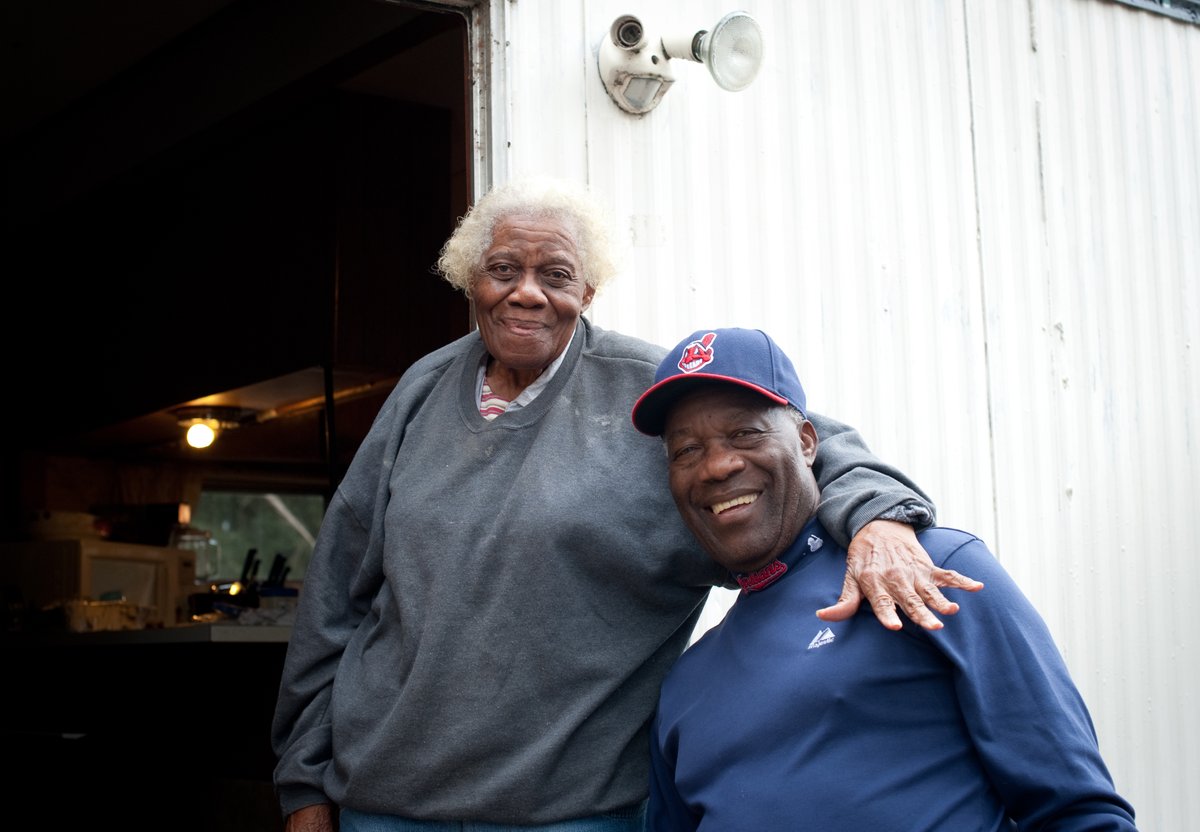
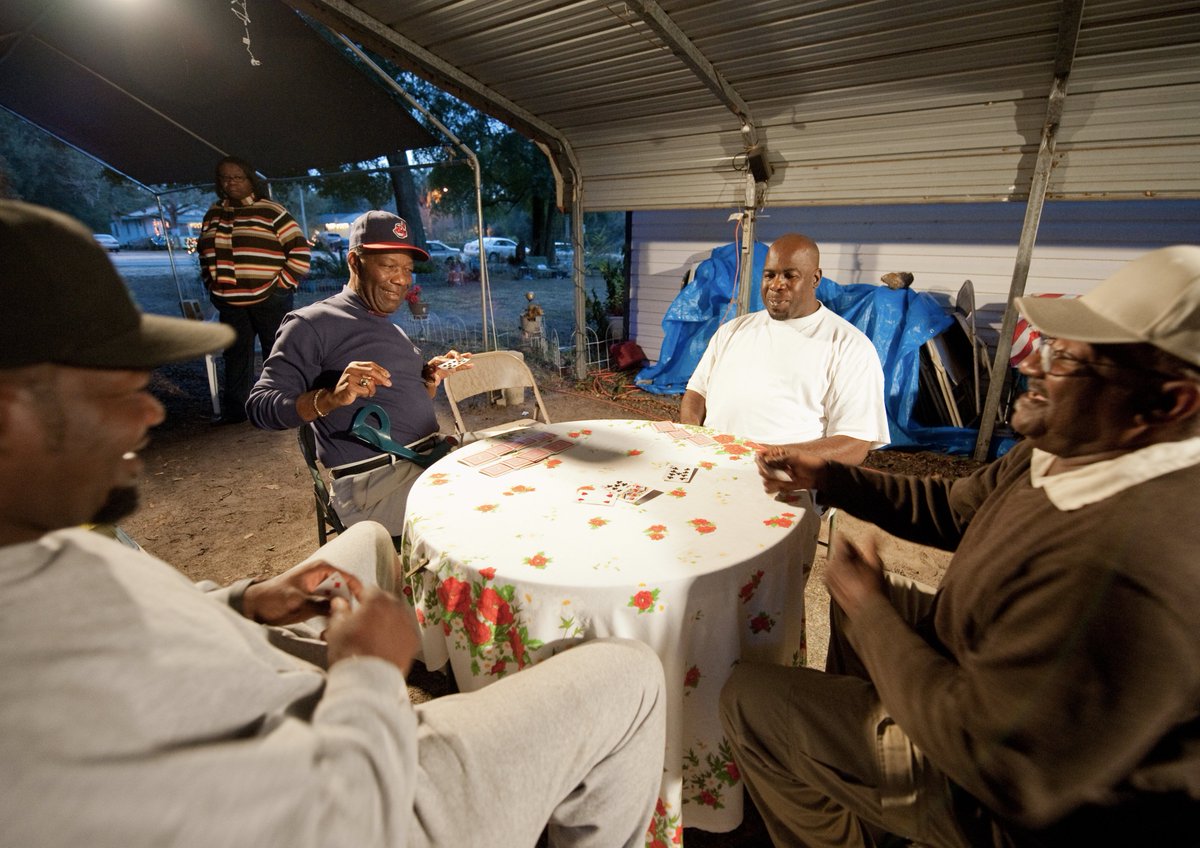
When he was signed in 54 by Cleveland, they gave him money to buy a suit. But nobody in town (Dade City) would allow a black man in a dressing room
Except for a department store run by Otto Weitzenkorn, a recent german jewish immigrant, who led Mudcat try on suits in his office
Except for a department store run by Otto Weitzenkorn, a recent german jewish immigrant, who led Mudcat try on suits in his office
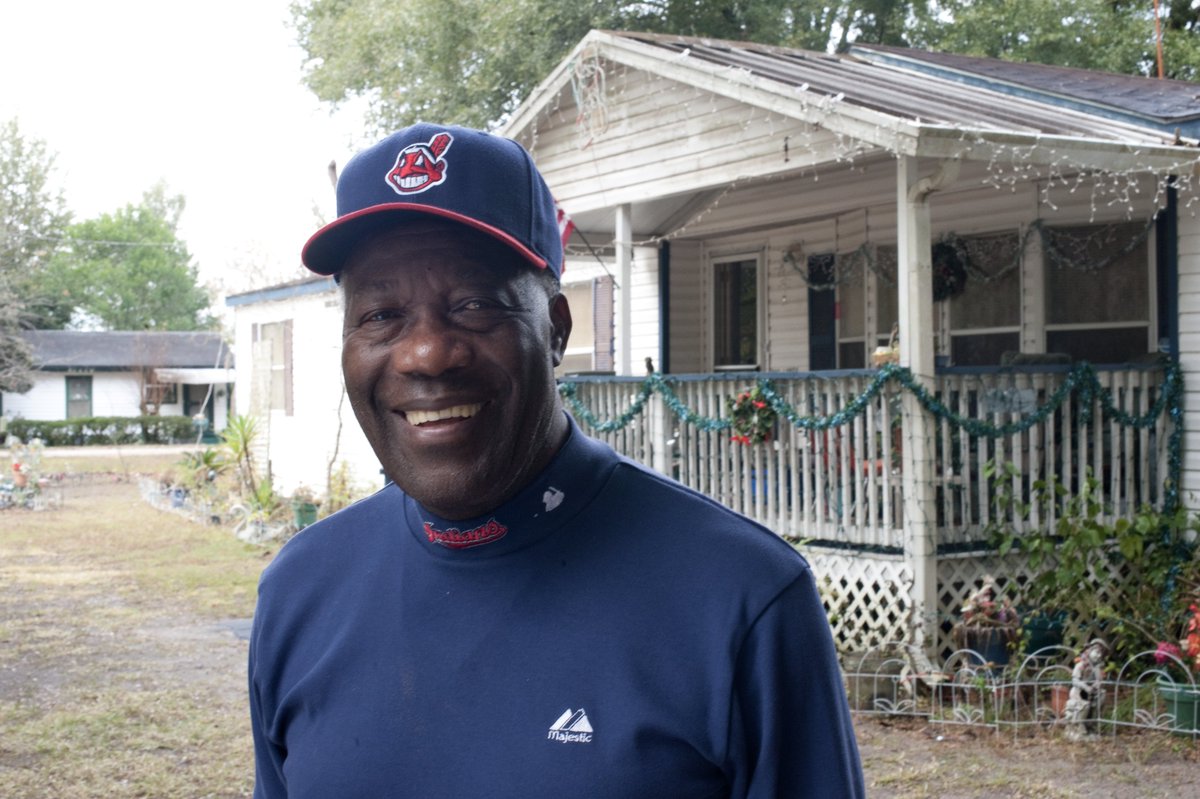
This is a nice little interview with him. He had so so many stories
Once after telling some pretty harrowing stories about his childhood in the deep south in 50s, & then the early years in baseball (he was one of the first 20 black in MLB & first in the minor league he was assigned to) I asked him why he never showed any anger or bitterness. Ever
He just smiled & laughed & said something to the effect, 'Well, if you get angry, or show it, they win. If you stay happy, that confuses them and makes them even angrier. I tell you, I feel sorry for them, always angry like that. Not how I want to live my life'
Found another quote from another time (this one exact)
“My mother told me never to lose my temper, never to give in to anger. She taught me that the best you can do is treat people with dignity & be polite with them.”
“And she was right: It makes them look even more foolish.”
“My mother told me never to lose my temper, never to give in to anger. She taught me that the best you can do is treat people with dignity & be polite with them.”
“And she was right: It makes them look even more foolish.”
On playing in minor leagues in North Dakota in 1950’s:
“They had never seen anyone with a tan, much less someone black like me. The mayor of the town told the manager I was not allowed to talk to white women. By the end of the summer I had a girlfriend. Kids will be kids.”
“They had never seen anyone with a tan, much less someone black like me. The mayor of the town told the manager I was not allowed to talk to white women. By the end of the summer I had a girlfriend. Kids will be kids.”
Few more thoughts on a remarkable man
Mudcat's childhood was steeped in poverty & racism. Lacoochee, still poor today, was very very poor & harshly segregated then
It was a classic southern mill town, with the blacks confined to shotgun shacks near railroad tracks,in "Mosstown"



Mudcat's childhood was steeped in poverty & racism. Lacoochee, still poor today, was very very poor & harshly segregated then
It was a classic southern mill town, with the blacks confined to shotgun shacks near railroad tracks,in "Mosstown"
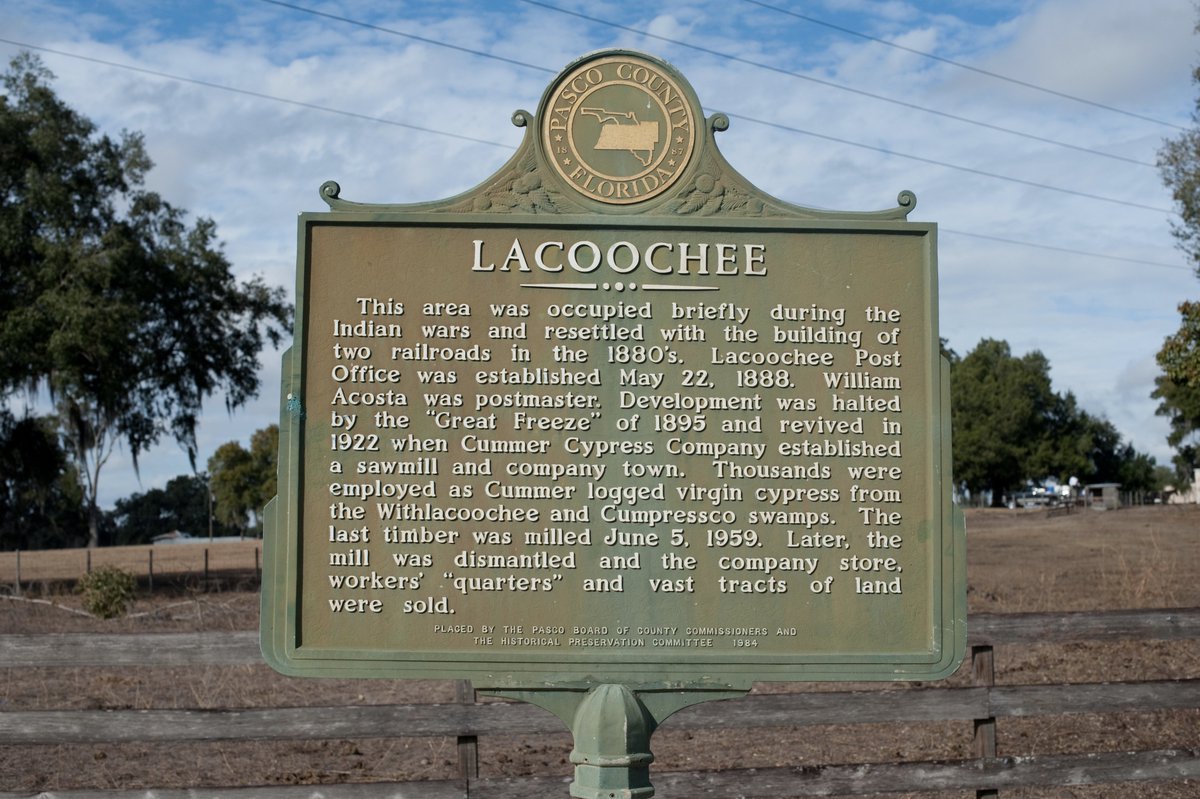

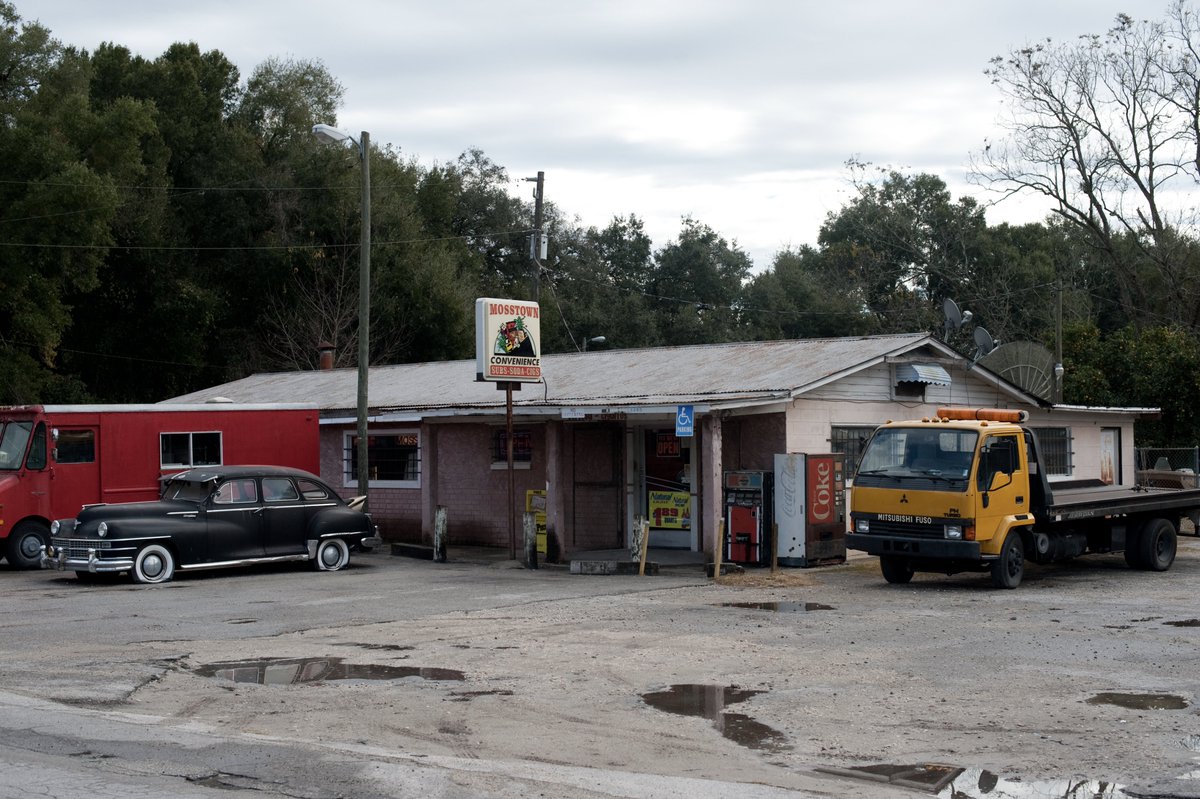

Mr Grant's family came to Lacoochee fleeing the Rosewood massacre of 23, settling down in only part of town they were allowed.
Most worked in the local mill, & like all workers, shopped in the mill store, went to the mill doctor.
Blacks couldn't go to local school though


Most worked in the local mill, & like all workers, shopped in the mill store, went to the mill doctor.
Blacks couldn't go to local school though
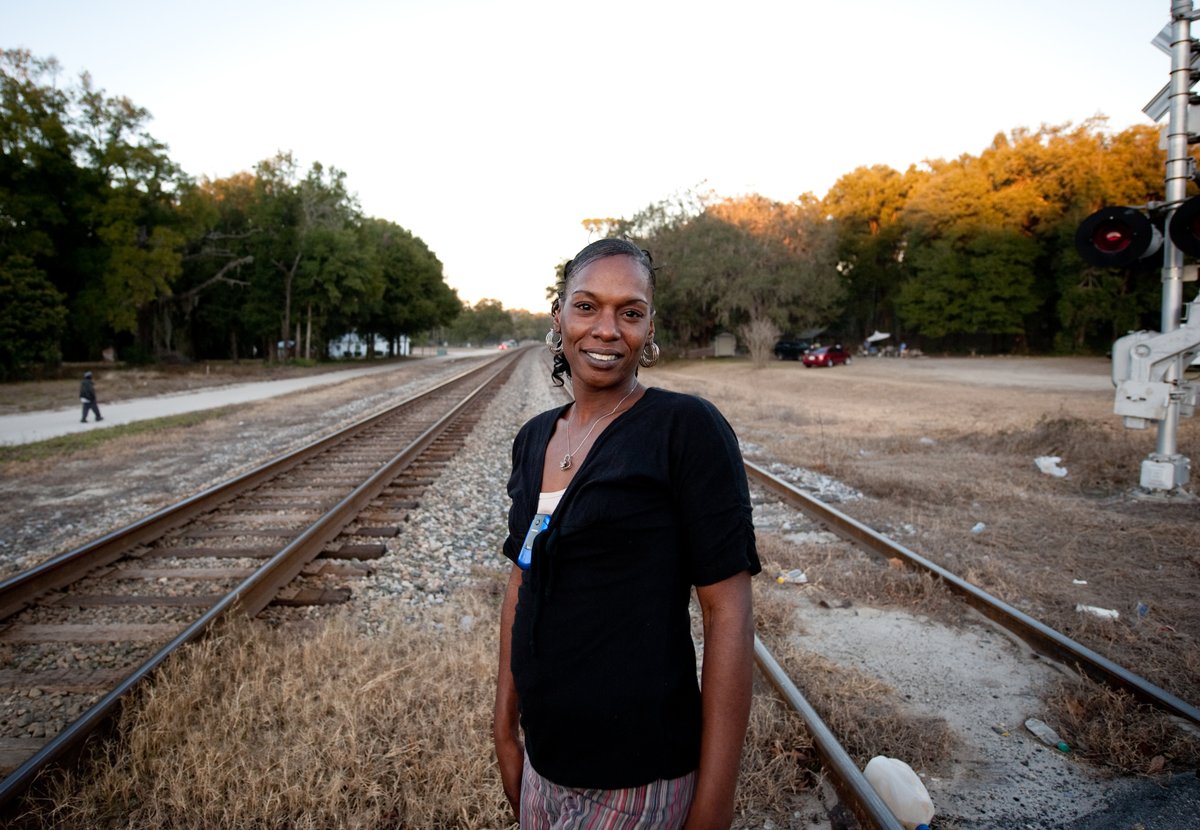
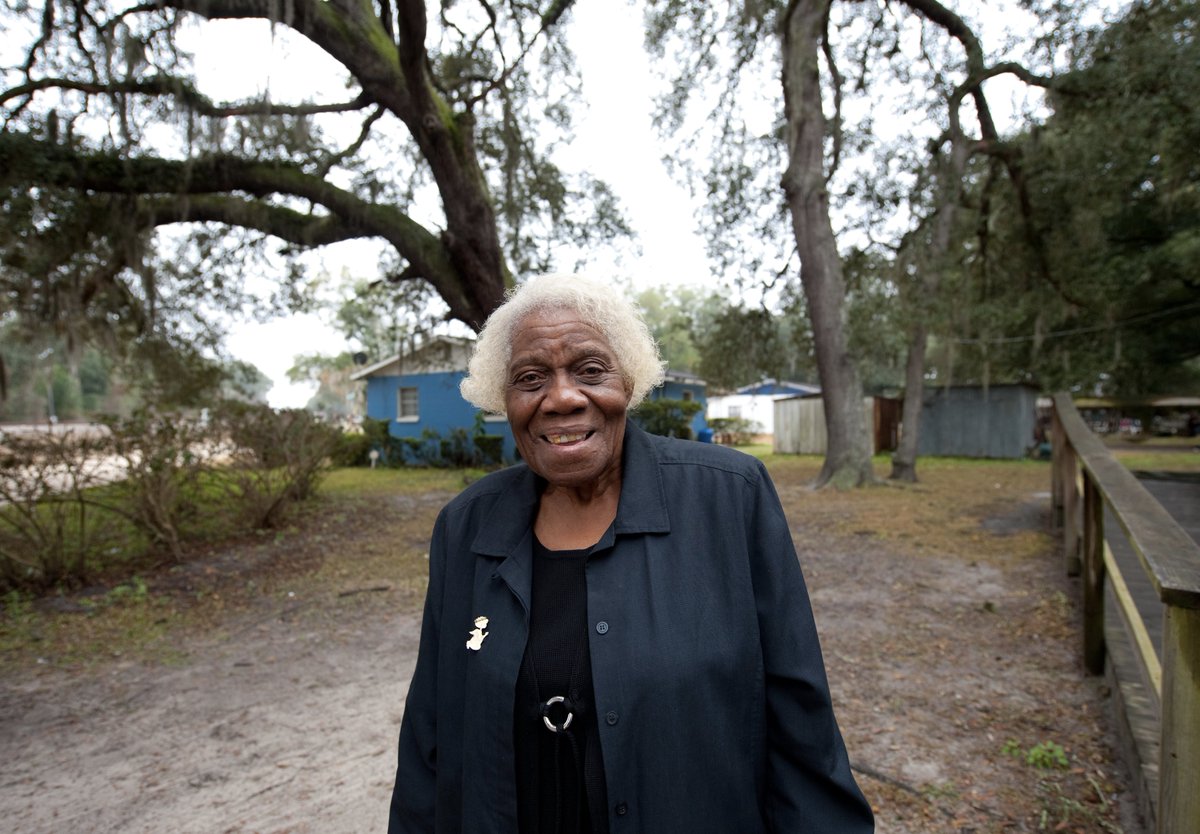
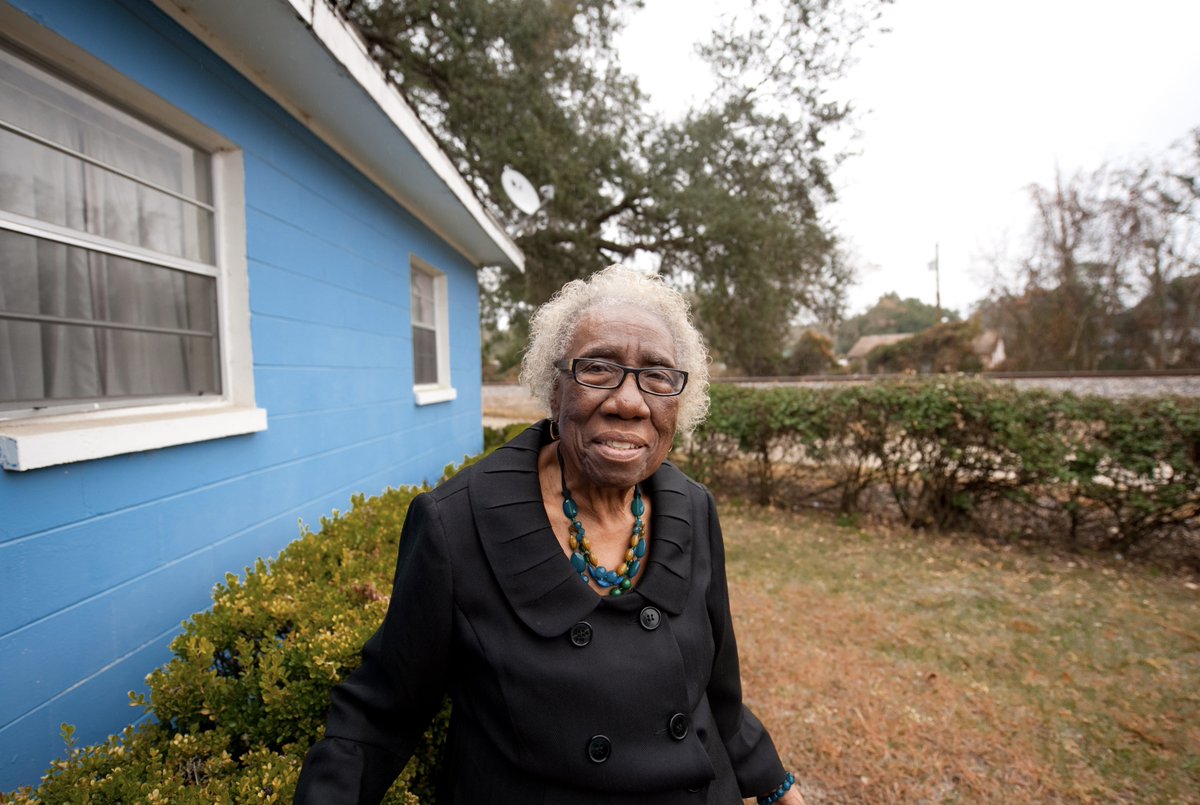
Another resident started a one room school for the black children. After that he attended the "Moore Academy", the counties only public school for blacks, 6 miles away. Which he walked to each day. (really)
Where he became the baseball & basketball team's star player.

Where he became the baseball & basketball team's star player.
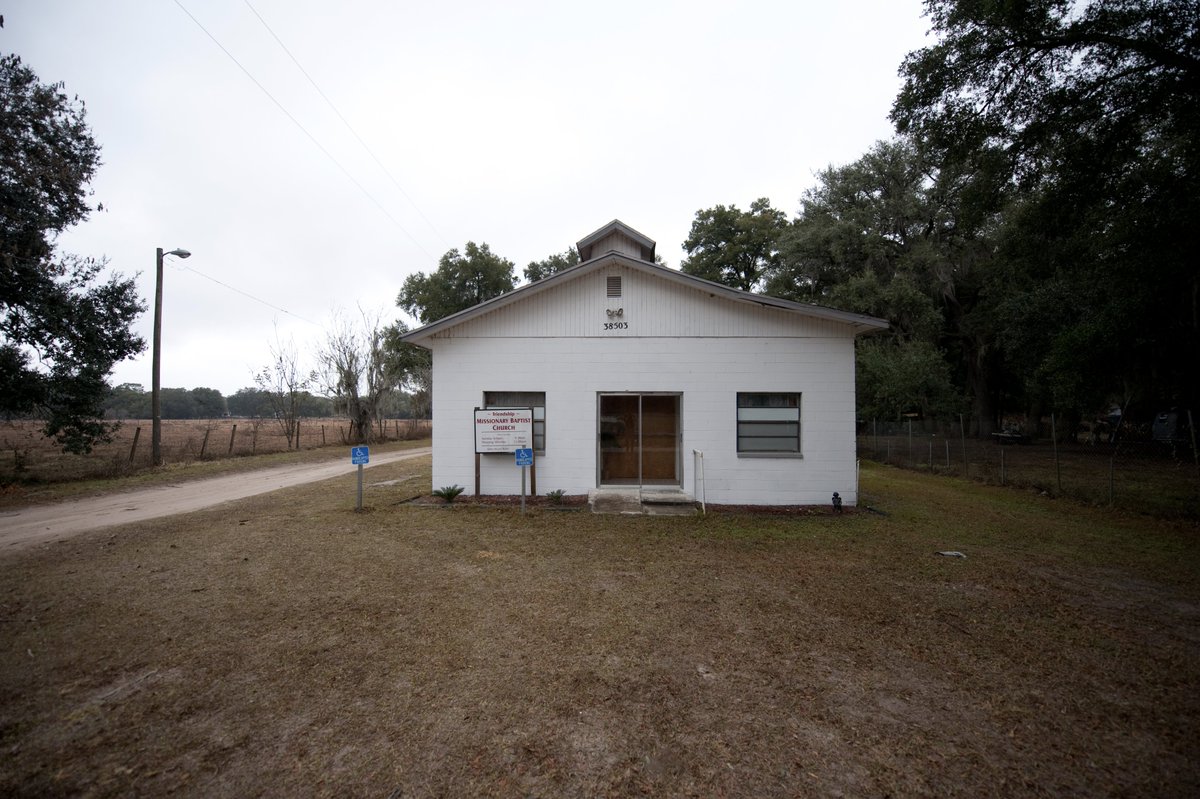
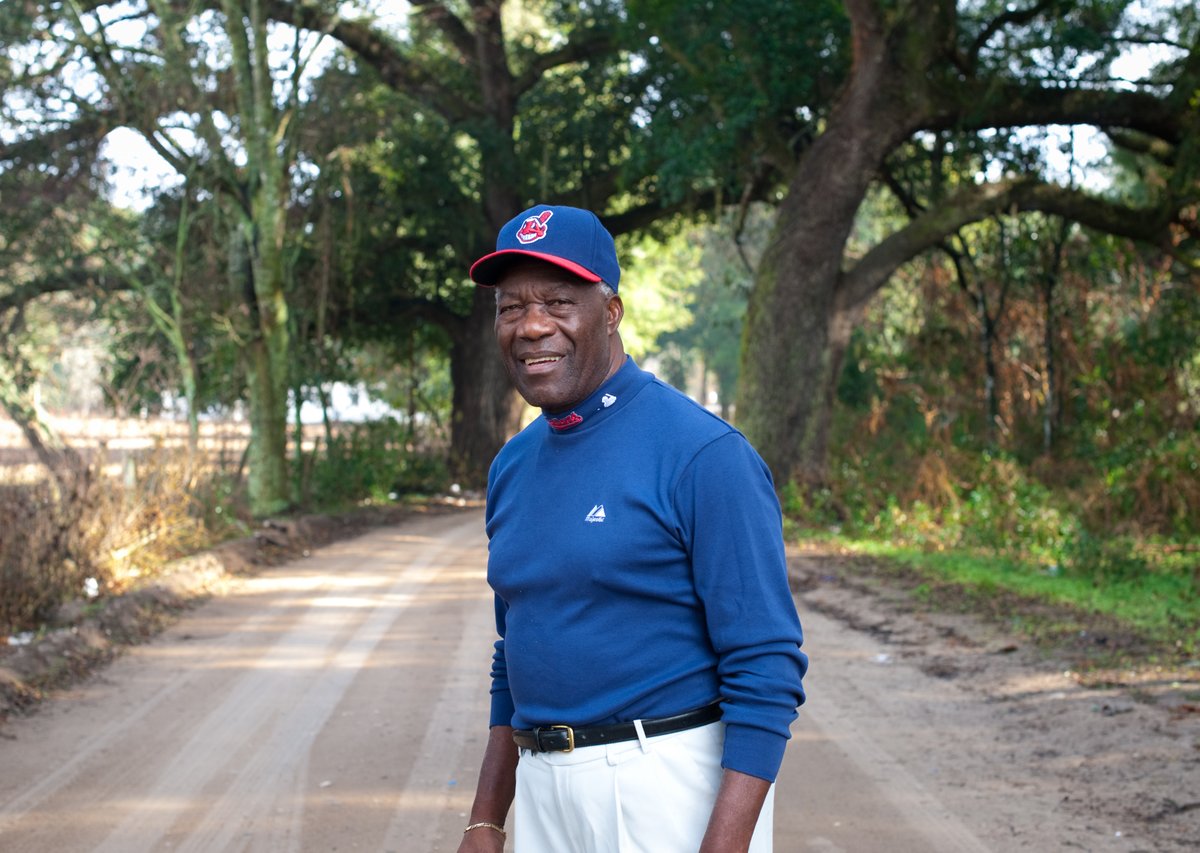
He went to Florida A&M on scholorships, but had to drop out because the Mill's closing had hit Lacoochee hard.
A scout saw him playing on a local semi pro team against a team of police. A game played in a cow pasture where he pitched & hit 3 HRs
A scout saw him playing on a local semi pro team against a team of police. A game played in a cow pasture where he pitched & hit 3 HRs
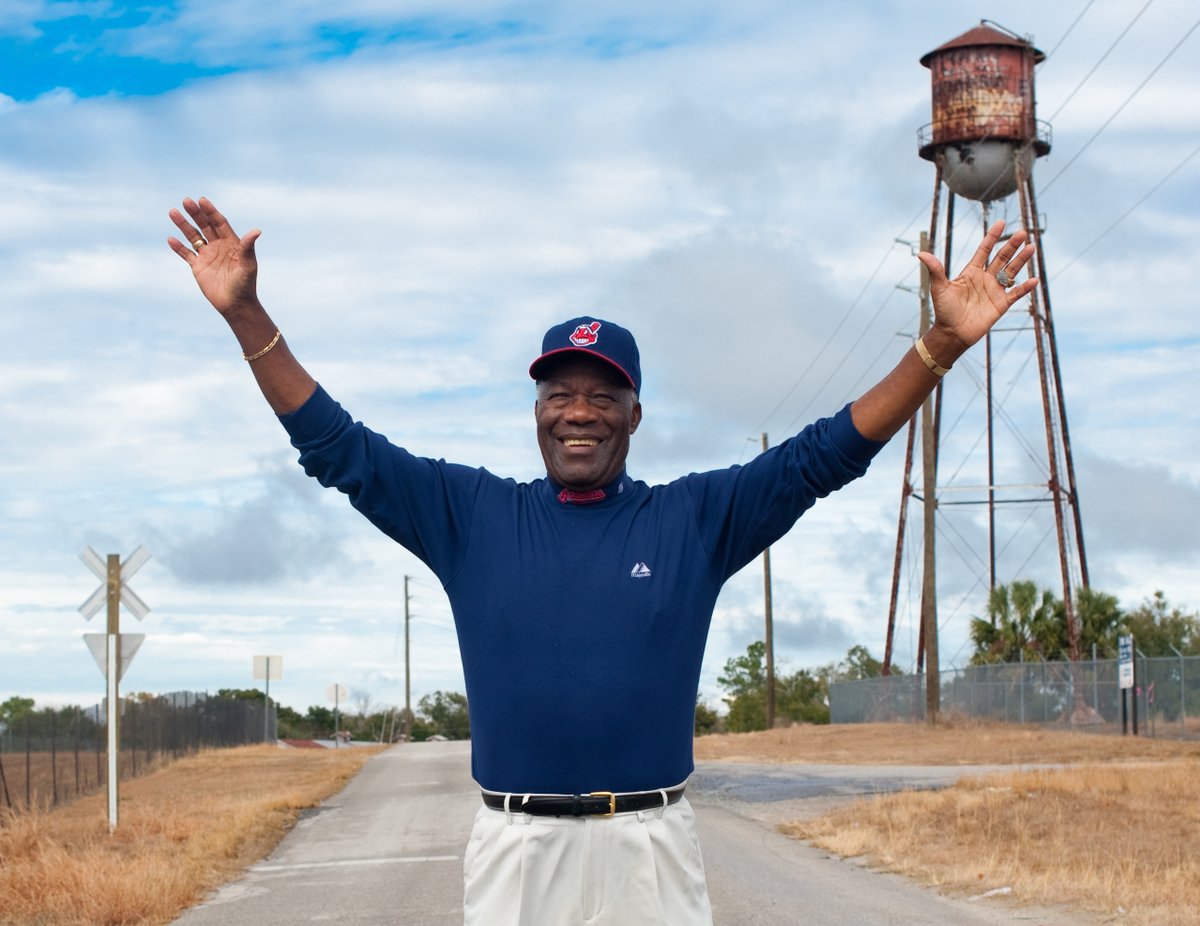
You know, Mr Grant was also an author; so will end this by letting his own words tell you about him.
From first pages of his book “The Black Aces”

From first pages of his book “The Black Aces”
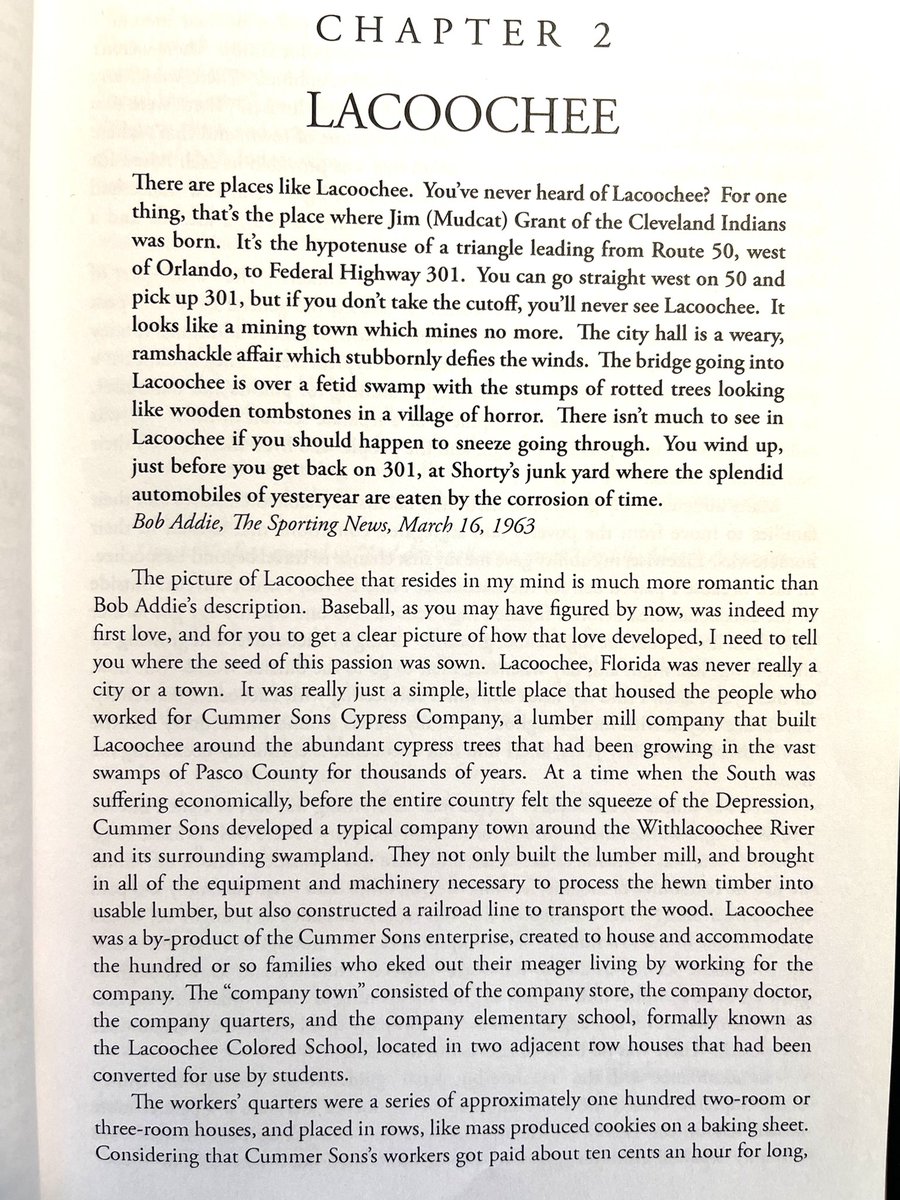
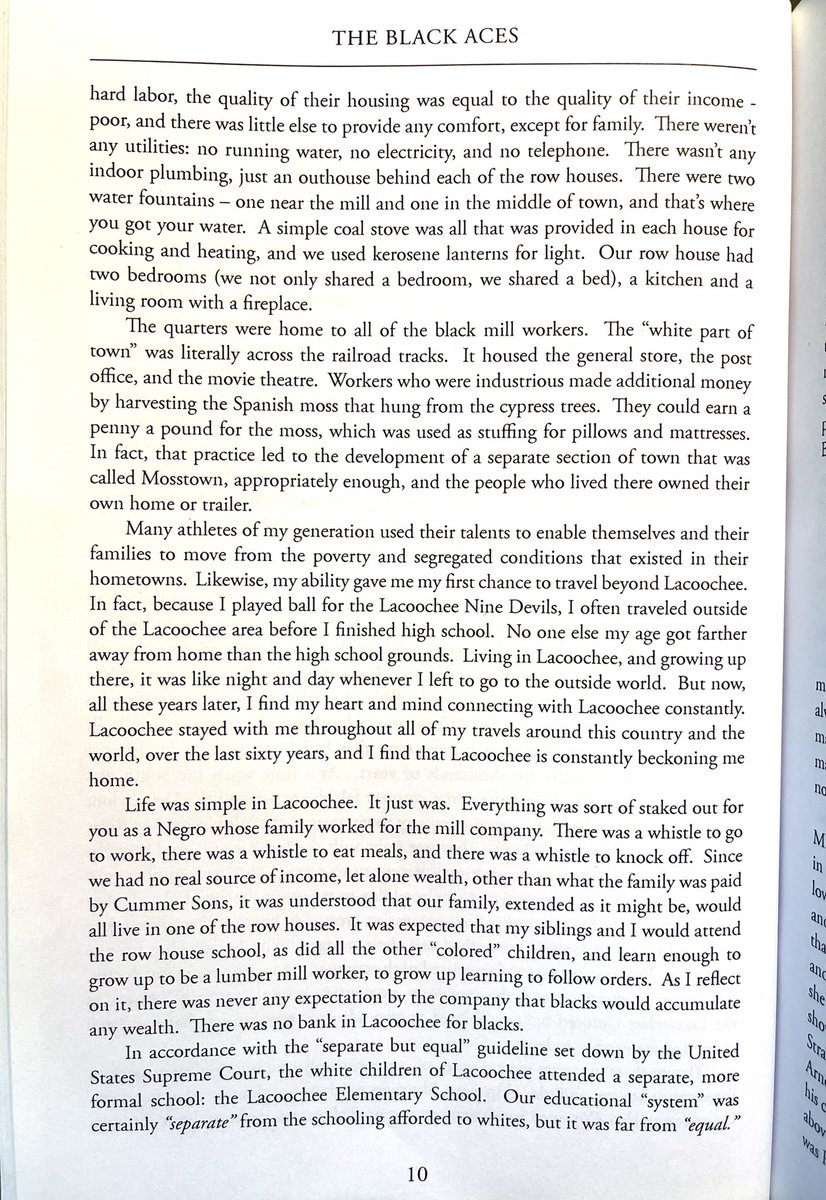
• • •
Missing some Tweet in this thread? You can try to
force a refresh



















